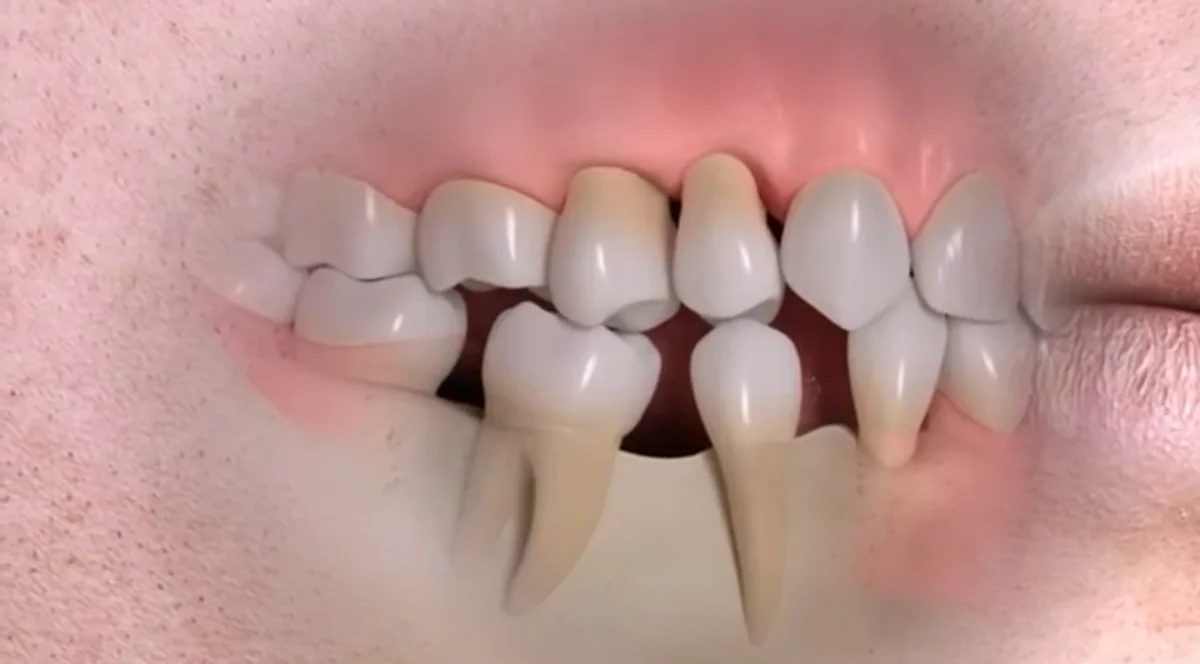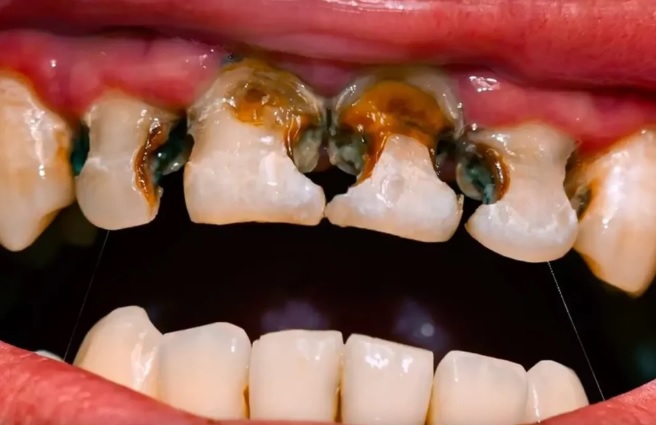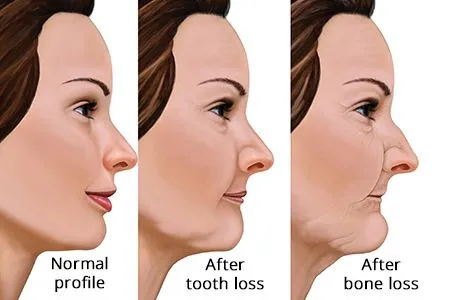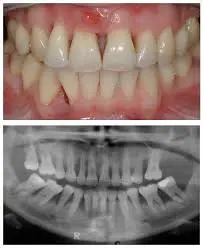Introduction
If you are worried about your missing or damaged teeth, constant dental pain, or difficulty chewing, you might be ignoring the early signs of a serious problem. Dental implants are the best solution for addressing these problems. Making the right decision at the right time is essential when performing this procedure. Symptoms often appear gradually because they progress unnoticed until they lead to more serious dental problems. This article outlines the eight clear signs that you may need dental implants. Early diagnosis and treatment can restore your smile, confidence, and overall oral health. The following are 8 of the most common signs that may require immediate attention:
1. Missing One or More Teeth
Facing oral injury, decay, or any type of gum disease can lead to missing teeth, but dental implants offer a more reliable and long-lasting solution. Unlike dentures, an implant is anchored to the jawbone securely, keeping the functions and aesthetics maintained. Implants restore your smile and help prevent surrounding teeth from shifting over time.
2. Loose Dentures or Bridges, or feeling uncomfortable
About 36 million people across the USA are edentulous (do not have any natural teeth). Approximately 120 million people are missing at least one tooth, among which 90% use dentures. Each year, 15% of US edentulous persons get new dentures (ADA).
If you are feeling pain or discomfort while speaking or eating, your or dentures often slip, your frustration is increasing and your quality of life is deteriorating. Dental implants are designed to overcome such discomfort because they offer a permanent and long-term solution by acting as an anchor. The removed teeth cause instability and irritation that can be treated with the help of dental implants that let you fully enjoy your food, talking, and laughing with full confidence.

3. Chewing or Biting Difficulty
Feeling discomfort while biting or chewing hard food is a warning sign for you to check your jaw structure with a professional dentist. Such pain or difficulty stems from three kinds of dental issues:
- Weakened teeth
- Bone loss
- Misalignment conditions.
If left untreated, the condition may worsen over time. Dental implants are the best option to solve your chewing or biting difficulty because they offer a highly effective and long-lasting solution. The robust design of dental implants and their secure integration into the jawbone provide you the strength, comfort, and confidence to enjoy your favourite food.

4. Deterioration of the Jawbone


Living with missing teeth for extended periods makes the underlying jawbone deteriorate gradually because of less stimulation (PubMed, 2022). The name of this process is resorption, which leads to altering facial structure, affecting bite function, and making serious complications for future dental treatment. To halt this decline, you may go for dental implants without wasting time because they help to mimic the root of the natural tooth and integrate it into the jawbone. They provide necessary stimulation for maintaining bone density and strength. In short, dental implants undeniably preserve facial contours and safeguard long-term oral health.
5. Severely Damaged or Decayed Teeth

Severely damaged or decayed teeth are the fifth warning sign for moving towards dental implants. If a tooth is extensively compromised and the dentist cannot fix it through conventional methods like fillings or crowns, it must be extracted. But don’t worry, dental implants offer the most advanced and long-lasting replacement strategy that seamlessly restores dental function and aesthetics. Implants replicate the strength and appearance of natural teeth as well as help to prevent complications associated with untreated damage, like infection or shifting of adjacent teeth.
6. Premature ageing and Facial Sagging

The effect of missing teeth is not only confined to the impacted bite but also dramatically changes the facial structure, as cheeks can sag inward without the natural support that teeth provide. Subsequently, lines and wrinkles form around the mouth, ultimately debilitating physically and emotionally. But it’s nothing to stress about, because dental implants can serve as a powerful tool to restore your aesthetics. It helps to maintain the integrity of your facial structure. By maintaining bone volume and supporting the surrounding tissues, implants help rejuvenate your appearance, restoring a youthful, well-balanced look that exudes confidence.
7. Gum Disease Leading to Tooth Loss

Advanced stages of gum disease, particularly periodontitis, can cause serious damage to the tissues and bones of the supporting teeth. In case of more progression, it can result in loose teeth or even tooth loss, which can ultimately affect chewing and speaking ability. In such cases, dental implants are the best option to replace the missing teeth with stable and natural-looking teeth by regaining the original strength of the bite as well as preserving the health of the jawbone and surrounding teeth.
8. Hidden Bone Loss

In some patients, the most serious dental issues remain hidden until revealed by routine X-rays. Subtle but progressive bone loss in the jaw is a serious issue that often goes unnoticed without the help of imaging. Such circumstances can be a silent warning sign that may lead to tooth loss, gum disease, or long-term missing teeth. Dental implants play a significant role in halting further bone damage, as they mimic the natural stimulation provided by tooth roots. By integrating with the jawbone, implants help maintain their density and strength, preventing future complications and preserving both oral health and facial integrity.
A. Generally, the use of local anesthesia numbs the surgery area because of that the procedure is not painful. After the surgery some patient feel discomfort and swelling which is normal and can be managed with over the counter pain relivers.
A. The most common signs include loose teeth, chewing difficulty, persistent pain in jaws, gum recession, and missing teeth.
A. No, before dental implants porcedure, gum disease needs to be treated because for successfull integration of implant procedure, healthy gums and sufficient bone density are essential.
A. Dental implants can last for 20 years if properly handle. Good oral hygiene and regular dental check ups can last for lifetime.
Dental implants cost depend on location, dentist experience, and the number of teeth being replaced.





